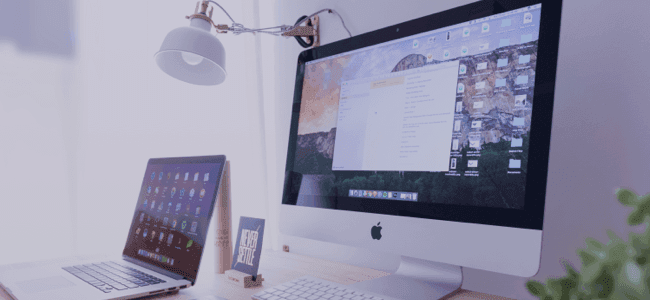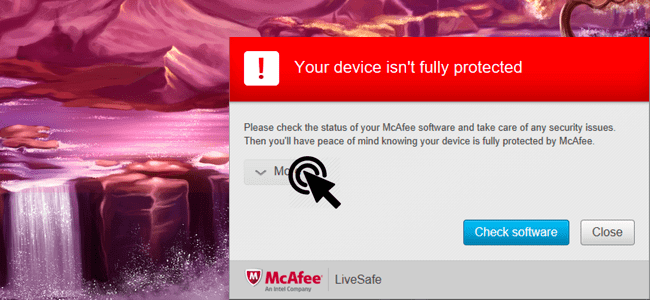9 Ways to Feel Secure Online

As the years go on, the internet seems to grow bigger and in a lot of ways, feel like some sort of a free-for-all.
Unfortunately, just like walking down the street, when you go on the internet, you’re tacitly agreeing to be a part of a system where a handful of bad eggs want to ruin it by stealing and pillaging personal data.
Thankfully, there are some measures that can be taken to feel more secure online, whether we’re using our desktops or mobiles.
While some methods might require effort or even spending a little bit of money, honestly, most of these points are common sense and certainly go a long way, considering how little effort it takes to be mindful of them.
Check your App Settings and Permissions
Keeping track of all the apps and websites we’ve subscribed to can be near-on impossible. Out of all of them, there’s a good chance that at least one has bad intentions and is either misusing your data or leaving your banking and login information exposed.
It really pays off to check the app settings and permissions on your desktop or smartphone once in a while in order to see what information you’re sharing with ruthless third-party advertisers.
Even being on a company’s newsletter can be dangerous if their data is breached. Certain websites exist purely to show you what mailing lists you’re subscribed to and provide a one-click solution to canceling them.
Have Different Logins For Everything
Using the same password for everything is a welcome invitation to hackers and can be truly disastrous, both socially and financially.
Most people in today’s age have social media accounts and are using money-managing services like PayPal - a hacker need only check these sites with the same login information they’ve already lifted elsewhere and you’re screwed.
You should never have the same password twice though understandably, it’s hard to keep track of every individual one.
Many people feel more secure using password storage software on their phones or on desktop, though certain browsers and hardware manufacturers offer this feature already integrated.
Put a Password on Your Cell Phone
Every person values their privacy. It’s why most people have a password on their phone or some sort of unique identification method for gaining access.
Let’s be honest, the only people that don’t have a password on their phone are either too boring or simply too naive of what the outcome could really be. Having your phone stolen whilst unlocked is one thing, but to have it stolen and for there to be no last line of defense in place is playing with fire.
Having a password, and not just ‘0000’, literally makes your phone worthless to most criminals, depending on what type of phone you have. iPhones aren’t exactly easy to crack, just ask the FBI. There’s a good chance the criminal might dump your phone and you can use GPS to find it.
Obviously, having no password gives them access to pretty much anything they want. Your online banking, social media profiles, and more.
Be Careful of What You Put in the Trash
As they say, one man’s trash is another man’s treasure. You should always be careful about what you throw away because you have no idea who’s going to root through your trash. Leaving bank statements, credit card bills, and some form of personal identification could leave you wide open to identity fraud.
These details can be used to open accounts, get lines of credit, and more, simply by making calls and impersonating you with the wealth of information they’ve just gathered from your trash. If you have to throw important documents away, try burning them in a monthly bonfire or shredding them first.
Always Clear Your Browsing History
There are plenty of reasons to do this one, not least for your own security. Your browsing history is your own business but forgetting to wipe it can lead to embarrassing and potentially dangerous outcomes.
Should you have your laptop stolen or if it’s lost, without a password on your computer, someone only has to go through your browsing history and cookies to find out login details to potentially all your social media accounts, online banking, and more.
There’s also a good chance that the person who has your computer or cell phone finds something that can be used against you for ransom.
Put a Strong Password on Your Wi-Fi
It’s not so common these days to just buy a Wi-Fi extender and leach from your elderly neighbor a couple of doors down. By default, providers tend to add more complex passwords and don’t leave you wide open without having an automatic one in place.
Sometimes, just typing in ‘password’ was enough to gain unforeseeable access to free Wi-Fi. If you’re not satisfied with the one given via your provider, make sure to change it to something that can’t be guessed and is in no way linked to you, like your surname or property’s address with just the number ‘1’ on the end.
Use a VPN
A Virtual Private Network, or VPN, is likely the most effective way of gaining privacy from governments, ISPs, and hackers. By rerouting all your traffic through your provider’s private servers, all web access becomes anonymous and near-on impossible for anyone to track.
A provider’s servers can be based all over the world and you only need to select the location to connect to one.
The added benefit of doing this is that you also get exclusive access to the content that’s available there. For example, connecting to a server in the UK would fool ISPs into thinking you’re based there, opening up access to all the exclusive dramas and comedies on BBC iPlayer and BritBox.
Make Regular Backups
Should anything go disastrously wrong and you find yourself in trouble online, making recent and regular backups is just one line of defense. Backups allow you to restore your desktop to a period of your choosing, whether it’s before the malware was installed or not, you just have to ensure a backup is created in advance.
If a hacker is trying to hold your system for ransom, being able to restore your system to an earlier state means you avoid paying any money to get your devices back online. Without backups, you may find that you’re stuck with your new corrupted and infected system.
Have Antivirus Software Installed
The best thing about antivirus software is that you can forget about all the hard work that comes with protecting yourself online.
Well, not all of it, but antivirus is there to detect, destroy, and prevent any malicious, untoward viruses from being installed on your computer, wherever they come from. Viruses make up just one type of online threat and there are plenty of them, all ranging in severity, but you’ll still need to protect yourself from them by installing a new package from a world-leading antivirus provider.
That way, you can go back to feeling secure on the web and leave the boring stuff to your new antivirus software.
The Best Antivirus Software
AVG: AVG has made a name for itself by providing some of the best free antivirus software on the market for around 30 years. The service has grown since the beginning to offer protection to all devices and provide even further security with premium memberships. Going premium will give you access to one of the most responsive technical teams in the antivirus industry, working round the clock to ensure consistent performance and support for AVG users.
Trend Micro: Supporting the antivirus industry for slighter longer than AVG is Trend Micro, first established back in 1988. Along with a free service, Trend Micro provides antivirus for Mac, Microsoft, iOS, and Android, as well as other less popular platforms. It’s incredibly simple to run scans and you can run them as frequently as you like, whether you have a paid membership or not. Customers can learn how to stay protected with plenty of online resources and tips.
Sophos: Sophos is committed to making security simple. The oldest of the three, Sophos has been making waves in the antivirus market since ‘85. There are plenty of packages available for both business and personal users and the software is compatible with most devices and operating systems. Unlike the other brands mentioned, Sophos doesn’t offer a free version but users can benefit from a free trial on any of its subscriptions. Between Intercept X and XG Firewall, Sophos customers are prepared for virtually all malicious attacks coming their way.
Bottom Line
It doesn’t take a lot of effort to be safe online. You’d certainly take these measures offline and you should be doing the same while browsing on your phone or desktop.
For some reason, people often neglect to protect themselves online and don’t take this aspect of using the internet seriously.
Though you can’t be physically harmed, the damage can be very real and still have as much of an impact on ruining you financially, mentally, and socially.
Always be sure to follow these steps when using the web and be sure to go with the leading providers for software like antivirus. It might cost you a bit of money but you’re certainly saving yourself some trouble in the long run.




